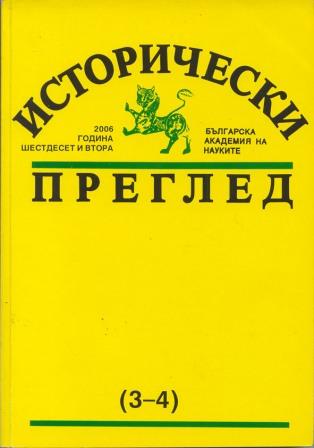Икономическите последици от Деветоюнския преврат 1923 г.
Economical Consequences of the Coup d’Etat 1923
Author(s): Pencho PenchevSubject(s): History
Published by: Институт за исторически изследвания - Българска академия на науките
Summary/Abstract: The economics in Bulgaria after the II World War are shattered. The country has to face the obligations from the Neuille treaty. The development is hindered by the numerous casualties in the wars and the thousands of refugees. Very bad efect on the economical state has the detachment of South Dobrudja and West Thrace. The detached agricultural government (1920- 1923) approves some steps to overcome the post-war crisis. But the coup d’etat on 09.06.1923 the government of Alexander Stamboliyski is overthrown. The new prime minister – Prof. Al. Cankov strives to strengthen his influence in the interior and international politics. And the same time the “rebellions” have to show accomplish their ideas in the social-economic sphere. The current research has to encounter and analyze the resemblances and the difference between the government of Alexander Stamboliyski and the first government of the “Democratic Agreement”. A comparison is made between legislation concerning the agrarian reform, the tax policy, labour duty and other economical stages of development of both governments. To accomplish this task the author relies on sources and uses the achievements of modern historical science.
Journal: Исторически преглед
- Issue Year: 2005
- Issue No: 3-4
- Page Range: 34-59
- Page Count: 26
- Language: Bulgarian
- Content File-PDF

